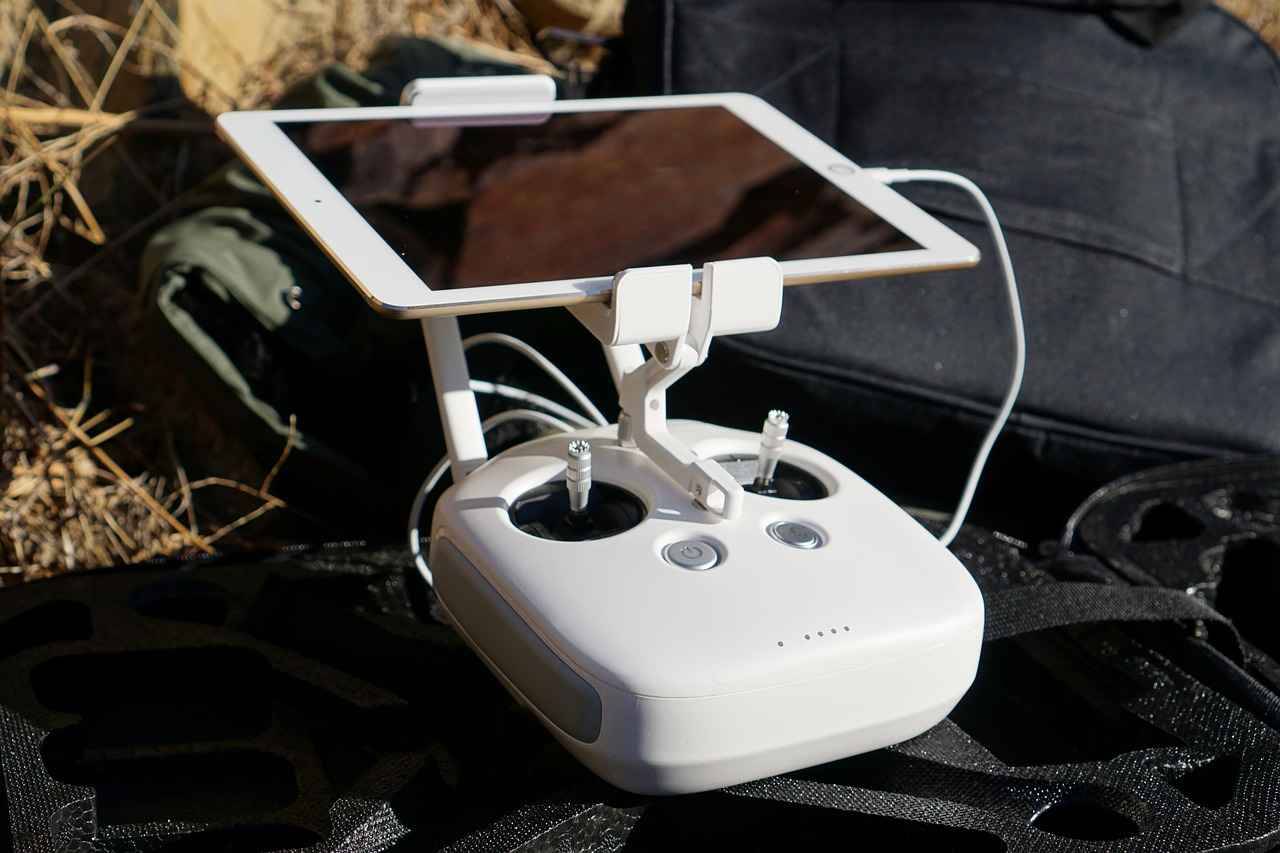This article serves as a comprehensive guide for aspiring remote customer service representatives, detailing the essential skills, tools, and strategies necessary to thrive in this role.
Understanding the Role of a Remote Customer Service Representative
Remote customer service representatives play a crucial role in ensuring customer satisfaction and loyalty. Their primary responsibilities include addressing customer inquiries, resolving issues, and providing support across various channels. By maintaining a positive and professional demeanor, they contribute significantly to a company’s reputation.
Essential Skills for Remote Customer Service Success
- Communication Skills: Effective verbal and written communication is vital for clear interactions with customers.
- Problem-Solving Abilities: The ability to quickly identify and resolve issues is essential for maintaining customer satisfaction.
- Empathy: Understanding and relating to customer feelings can enhance the service experience.
Tools and Technology for Remote Customer Service
Utilizing the right tools is key to efficient remote customer service. Important technologies include:
- Customer Relationship Management (CRM) Systems: These tools help track customer interactions and improve relationships.
- Communication Platforms: Software like chat, email, and video conferencing tools facilitate effective communication.
Building a Productive Home Office Environment
Creating a conducive workspace is essential for productivity. Consider these tips:
- Designate a specific area for work.
- Minimize distractions by setting boundaries with family and friends.
Time Management Strategies for Remote Workers
Effective time management can enhance productivity. Techniques include prioritizing tasks and setting specific work hours to avoid burnout.
Handling Difficult Customers
Dealing with challenging customers is part of the job. Employing patience and professionalism can turn a negative experience into a positive one.
Continuous Learning and Development
The customer service landscape is constantly evolving. Engaging in ongoing training and staying updated with industry trends is crucial for long-term success.
Conclusion: Your Path to Success in Remote Customer Service
In summary, becoming a successful remote customer service representative requires a blend of essential skills, effective tools, and a proactive approach. By focusing on these areas, you can enhance your career and contribute positively to your organization.

Understanding the Role of a Remote Customer Service Representative
In today’s digital age, the role of a remote customer service representative has become increasingly vital for businesses seeking to maintain a competitive edge. These professionals serve as the frontline of customer interaction, ensuring that inquiries are addressed promptly and effectively. Their responsibilities encompass a range of tasks that are crucial for fostering customer satisfaction and loyalty.
- Responding to Customer Inquiries: Remote representatives are responsible for answering questions via various channels, including email, chat, and phone. Their ability to provide accurate information quickly can significantly influence a customer’s perception of the brand.
- Troubleshooting Issues: Customers often reach out with problems or concerns. Representatives must possess strong problem-solving skills to diagnose issues and offer effective solutions, ensuring that customers feel valued and supported.
- Documenting Interactions: Maintaining detailed records of customer interactions is essential. This documentation helps in tracking issues, improving service quality, and providing insights for future interactions.
- Gathering Customer Feedback: Representatives often collect feedback to understand customer experiences better. This information is vital for businesses to improve their products and services.
- Promoting Products and Services: In addition to resolving issues, remote representatives may also inform customers about new products or services, helping to drive sales and enhance customer engagement.
The importance of remote customer service representatives cannot be overstated. They are the voice of the company, often shaping the customer’s impression and loyalty towards the brand. By effectively managing customer interactions and addressing concerns, they play a pivotal role in building long-term relationships. Ultimately, their contributions are essential not only for customer retention but also for the overall success of the business.

Essential Skills for Remote Customer Service Success
In the evolving landscape of remote customer service, certain skills stand out as essential for success. These skills not only enhance the customer experience but also contribute significantly to the effectiveness of customer service representatives. Below, we explore three critical skills: communication, problem-solving, and empathy.
- Communication Skills: Clear and effective communication is the cornerstone of remote customer service. Representatives must convey information accurately and succinctly, whether through written or verbal means. This includes:
- Active Listening: Understanding customer needs requires active listening. By focusing on what the customer is saying and asking clarifying questions, representatives can ensure that they address the customer’s concerns appropriately.
- Clear Articulation: Articulating responses in a simple and direct manner helps prevent misunderstandings. This is especially important in written communications, where tone can be easily misinterpreted.
- Problem-Solving Abilities: The ability to resolve issues efficiently is vital in customer service. Representatives should be equipped with:
- Analytical Skills: Analyzing customer problems quickly and accurately allows for swift solutions, enhancing customer satisfaction.
- Creativity: Sometimes, standard solutions may not suffice. Creative thinking can lead to innovative solutions that delight customers.
- Empathy: Understanding and sharing the feelings of customers can significantly improve interactions. Empathy helps representatives to:
- Build Rapport: Establishing a connection with customers fosters trust and loyalty.
- Enhance Customer Satisfaction: When customers feel understood, their overall experience improves, leading to higher satisfaction rates.
In conclusion, mastering these essential skills can empower remote customer service representatives to excel in their roles, ensuring effective customer interactions and fostering long-term relationships. As the demand for remote services continues to grow, honing these skills will be crucial for success in this field.
Communication Skills
Effective communication plays a pivotal role in the realm of remote customer service. In a virtual environment, where face-to-face interactions are absent, the ability to convey information clearly and effectively is more important than ever. This section delves into the essential verbal and written communication skills that are necessary for clear and concise customer interactions, ensuring that representatives can meet customer needs efficiently.
Firstly, verbal communication encompasses not only the words spoken but also the tone and clarity of voice. It is vital for representatives to articulate their thoughts clearly, using simple language that avoids jargon. This helps in preventing misunderstandings and fosters a positive customer experience. Additionally, employing active listening techniques allows representatives to fully understand customer concerns, leading to more effective resolutions.
On the other hand, written communication is equally crucial. Emails, chat messages, and other forms of written correspondence must be concise and well-structured. Here are some tips for enhancing written communication:
- Use clear subject lines that summarize the content of the message.
- Be concise and to the point, avoiding unnecessary details.
- Utilize bullet points or numbered lists to organize information clearly.
- Proofread messages for grammar and spelling errors before sending.
In conclusion, mastering both verbal and written communication skills is essential for remote customer service representatives. By focusing on clarity, active listening, and effective written correspondence, they can enhance customer satisfaction and build lasting relationships. As the landscape of customer service continues to evolve, honing these skills will remain a critical component of success in the field.
Active Listening
is a critical skill in the realm of customer service, particularly for remote representatives. It goes beyond merely hearing the words spoken by customers; it involves fully engaging with their concerns and emotions. This section delves into effective techniques to enhance your active listening skills, ensuring that customers feel both heard and valued.
To begin with, maintaining eye contact during video calls can significantly improve your connection with customers. It shows that you are attentive and genuinely interested in their issues. Additionally, using verbal affirmations such as “I understand” or “That makes sense” can encourage customers to express themselves more openly.
Another vital technique is to practice reflective listening. This involves summarizing what the customer has said to confirm your understanding. For example, you might say, “So what I’m hearing is that you’re frustrated with the delay in your order, is that correct?” This not only clarifies any misunderstandings but also reassures the customer that their feelings are validated.
Furthermore, eliminating distractions while interacting with customers is essential. Ensure that your workspace is quiet and free from interruptions, allowing you to focus entirely on the conversation. This level of concentration can greatly enhance your ability to grasp the nuances of the customer’s concerns.
Lastly, asking open-ended questions encourages customers to elaborate on their issues. Questions like “Can you tell me more about what happened?” invite them to share their experiences in detail, providing you with valuable insights to address their needs effectively.
In conclusion, mastering active listening is fundamental for remote customer service representatives. By implementing these techniques, you not only improve your communication skills but also foster a stronger relationship with your customers, ultimately leading to higher satisfaction and loyalty.
Clear Articulation
is a vital component of effective communication, especially in customer service roles. When representatives express themselves clearly, they significantly reduce the chances of misunderstandings, fostering better relationships with customers. This section explores practical strategies to enhance clarity in both written and verbal communications.
- Use Simple Language: Avoid jargon and complex terms. Using straightforward language ensures that customers easily understand your message.
- Be Concise: Aim for brevity while maintaining the essential information. Long-winded explanations can confuse customers, so stick to the point.
- Organize Information: Structure your communication logically. Use bullet points or numbered lists to break down information, making it easier for customers to follow.
- Confirm Understanding: After providing information, ask customers if they have any questions. This not only clarifies your message but also shows that you value their comprehension.
- Practice Active Listening: Pay close attention to what customers say. This helps you respond appropriately and ensures that you address their specific concerns.
Moreover, non-verbal cues play a significant role in verbal communication. Maintaining an open and friendly tone, along with appropriate body language during video calls, can enhance clarity and build rapport. In written communications, consider using formatting tools like bold or italics to emphasize critical points, guiding customers through your message.
Finally, continuous improvement is key. Regularly seek feedback from customers about your communication style. This will help you identify areas for enhancement and adapt your approach to better meet their needs.
By implementing these strategies, customer service representatives can significantly improve their communication effectiveness, leading to enhanced customer satisfaction and loyalty.
Problem-Solving Abilities
are essential for remote customer service representatives as they navigate through various customer inquiries and issues. In today’s fast-paced digital environment, the ability to quickly and effectively resolve problems can significantly enhance customer satisfaction and loyalty. This section outlines several methods to improve these vital skills and ensure that representatives can provide timely solutions.
- Develop a Structured Approach: Utilizing a systematic method to tackle problems can lead to more efficient resolutions. Start by identifying the issue, gathering relevant information, brainstorming possible solutions, and evaluating the outcomes of each option.
- Practice Empathy: Understanding the customer’s perspective is crucial. By empathizing with their situation, representatives can better identify the root cause of the problem and offer more personalized solutions.
- Enhance Critical Thinking: Engaging in activities that promote critical thinking, such as puzzles and strategy games, can sharpen your analytical skills. This can help representatives assess situations more effectively and devise appropriate solutions.
- Utilize Technology: Familiarize yourself with various tools and software that can assist in problem-solving. For example, customer relationship management (CRM) systems can provide valuable insights into customer history, which can inform the solution process.
- Seek Feedback: Regularly asking for feedback from peers and supervisors can provide new perspectives on problem-solving approaches. Constructive criticism can help identify areas for improvement and refine existing skills.
In conclusion, enhancing problem-solving abilities is a continuous process that requires practice, dedication, and a willingness to learn. By implementing these strategies, remote customer service representatives can not only resolve issues more effectively but also contribute to a more positive customer experience.

Tools and Technology for Remote Customer Service
In today’s digital landscape, remote customer service has become increasingly vital for businesses aiming to maintain strong customer relationships. To effectively manage these interactions, representatives rely on a variety of essential tools and technologies that streamline processes and enhance communication. Below, we explore some of the most important resources that facilitate effective remote customer service.
- Customer Relationship Management (CRM) Systems: CRM systems are at the heart of customer service operations. They allow representatives to track customer interactions, manage inquiries, and maintain detailed records of customer preferences and histories. Popular CRM tools like Salesforce and Zoho CRM enable teams to personalize their service, leading to improved customer satisfaction.
- Communication Platforms: Effective communication is crucial in remote customer service. Platforms such as Slack, Microsoft Teams, and Zoom provide diverse channels for interaction, including chat, voice, and video calls. These tools help representatives connect with customers in real-time, ensuring quick resolutions to their issues.
- Ticketing Software: Ticketing systems like Zendesk and Freshdesk are essential for managing customer requests. They allow representatives to categorize and prioritize inquiries, ensuring that urgent issues are addressed promptly. This structured approach helps maintain an organized workflow and enhances overall efficiency.
- Knowledge Bases: A well-maintained knowledge base, such as Helpjuice or Confluence, empowers customers to find answers independently. These platforms provide self-service options, reducing the volume of inquiries and allowing representatives to focus on more complex issues.
- Analytics Tools: Utilizing analytics tools like Google Analytics and Tableau can provide insights into customer behavior and service performance. By analyzing this data, businesses can identify trends and areas for improvement, ultimately enhancing the customer experience.
In conclusion, leveraging the right tools and technology is crucial for remote customer service representatives. By utilizing CRM systems, communication platforms, ticketing software, knowledge bases, and analytics tools, businesses can ensure that their customer service operations are efficient, effective, and customer-focused.
Customer Relationship Management (CRM) Systems
play a pivotal role in enhancing customer interactions and relationships. In this section, we will explore how to effectively utilize CRM tools to track, analyze, and improve customer engagement.
CRM systems serve as a centralized hub for managing customer data, interactions, and feedback. By leveraging these tools, businesses can not only streamline their processes but also foster stronger connections with their clients. Here are some key strategies to maximize the effectiveness of CRM systems:
- Data Organization: Ensure that customer information is meticulously categorized and easily accessible. This includes contact details, purchase history, and previous interactions, which can provide valuable insights.
- Automated Follow-Ups: Utilize CRM features to automate follow-up emails or messages. This helps maintain engagement and shows customers that their needs are prioritized.
- Personalization: Use the data collected to tailor communications and offers to individual customers. Personalized experiences can significantly enhance customer satisfaction and loyalty.
- Analytics and Reporting: Regularly analyze data trends and customer feedback through the CRM. This allows businesses to identify areas for improvement and adapt strategies accordingly.
- Integration with Other Tools: Integrate CRM systems with other platforms such as email marketing tools, social media, and customer support software. This creates a seamless workflow and enhances overall efficiency.
By implementing these strategies, organizations can effectively track customer interactions and foster long-lasting relationships. A well-utilized CRM system not only enhances customer satisfaction but also drives business growth.
In conclusion, CRM systems are indispensable in today’s competitive market. They empower businesses to understand their customers better, respond to their needs promptly, and build a loyal customer base. Embracing these tools can lead to significant improvements in customer relationship management.
Communication Platforms
play a crucial role in ensuring effective remote customer service. With the rise of digital interactions, businesses must leverage various tools to maintain seamless communication with their customers. This section explores the most popular platforms that facilitate these interactions, including chat, email, and video conferencing software.
First and foremost, live chat systems have gained immense popularity for their immediacy. They allow customer service representatives to engage with customers in real-time, addressing queries and concerns as they arise. This instant communication not only enhances customer satisfaction but also significantly reduces response times.
In addition to live chat, email remains a foundational tool for customer service. It provides a written record of interactions, which can be beneficial for both customers and representatives. Emails allow for detailed responses and are ideal for complex issues that require thorough explanations. However, it’s essential to maintain a timely response rate to ensure customers feel valued and heard.
Video conferencing software, such as Zoom or Microsoft Teams, has also emerged as a valuable resource for remote customer service. These platforms enable face-to-face interactions, which can help build rapport and trust with customers. Video calls are particularly effective for resolving complicated issues that may benefit from visual aids or demonstrations.
| Platform | Benefits | Best Use Cases |
|---|---|---|
| Live Chat | Real-time interaction, quick response | Immediate queries, FAQs |
| Detailed responses, written record | Complex issues, follow-ups | |
| Video Conferencing | Personal connection, visual aids | Complicated issues, demonstrations |
In conclusion, utilizing a combination of these communication platforms can significantly enhance the effectiveness of remote customer service. By understanding the strengths and appropriate applications of each tool, businesses can create a more responsive and customer-centric service experience.

Building a Productive Home Office Environment
In today’s world, where remote work is becoming increasingly common, creating an effective workspace is essential for success. A well-designed home office can significantly enhance productivity and minimize distractions. Here are some tips to help you establish a workspace that fosters focus and efficiency.
- Choose the Right Location: Select a quiet area in your home that is away from high-traffic zones. Ideally, this should be a space that allows you to concentrate without interruptions.
- Invest in Ergonomic Furniture: Comfortable furniture is vital for long hours of work. Consider an ergonomic chair and a desk at the right height to maintain good posture and reduce strain.
- Optimize Lighting: Good lighting can enhance your mood and productivity. Aim for natural light where possible, and supplement with adjustable desk lamps to reduce eye strain.
- Minimize Distractions: Keep your workspace clutter-free. Use organizers to manage documents and supplies, and consider noise-canceling headphones to block out background noise.
- Personalize Your Space: Adding personal touches such as artwork or plants can make your workspace more inviting. However, be mindful not to overcrowd your area with distractions.
- Establish a Routine: Set specific work hours and stick to them. This helps create a clear distinction between work and personal time, promoting better focus during work hours.
By implementing these strategies, you can create a home office that not only enhances your productivity but also supports your overall well-being. Remember, the goal is to create an environment that works for you, allowing you to thrive in your remote work journey.

Time Management Strategies for Remote Workers
Effective time management is crucial for remote customer service representatives, as it directly impacts productivity and customer satisfaction. In this section, we will explore various techniques to help you prioritize tasks and maintain a healthy work-life balance.
Prioritizing Tasks
To manage your workload efficiently, it is essential to prioritize tasks based on urgency and importance. Here are some effective methods:
- The Eisenhower Matrix: This tool helps you categorize tasks into four quadrants: urgent and important, important but not urgent, urgent but not important, and neither urgent nor important. Focus on completing tasks in the first two quadrants.
- Daily To-Do Lists: Start each day by creating a list of tasks you need to accomplish. This will help you stay organized and focused throughout the day.
- Time Blocking: Allocate specific time slots for different tasks. This technique can help you stay on track and minimize distractions.
Setting Boundaries
Establishing clear boundaries between work and personal life is vital for preventing burnout. Here are some tips:
- Designate a Workspace: Create a dedicated area in your home for work. This helps to mentally separate work from personal life.
- Establish Work Hours: Set specific start and end times for your workday to maintain a routine and avoid overworking.
- Communicate Availability: Let your colleagues and family know your work schedule to minimize interruptions during work hours.
Conclusion
By implementing effective time management strategies, remote customer service representatives can enhance their productivity and maintain a healthy work-life balance. Prioritizing tasks and setting boundaries are key components of successful time management. With these techniques, you can ensure that you meet customer needs while also taking care of your personal well-being.
Prioritizing Tasks
is a fundamental skill for remote customer service representatives, enabling them to manage their workload efficiently and effectively. In a fast-paced environment where customer inquiries can come at any moment, understanding how to identify and organize tasks is crucial for success.
To prioritize effectively, it is essential to distinguish between urgent and important tasks. One effective method is the Eisenhower Matrix, which categorizes tasks into four quadrants:
| Quadrant | Description |
|---|---|
| Urgent and Important | Tasks that require immediate attention and are critical for success. |
| Important but Not Urgent | Tasks that contribute to long-term goals but do not need immediate action. |
| Urgent but Not Important | Tasks that need to be done quickly but do not significantly impact overall goals. |
| Neither Urgent nor Important | Tasks that can be scheduled for later or delegated. |
By utilizing this matrix, representatives can focus on what truly matters, ensuring that they address customer needs promptly while also planning for future tasks.
Another effective strategy is to create a daily task list. Start each day by listing out tasks based on their urgency and importance. This not only helps in organizing the day but also provides a sense of accomplishment as tasks are checked off. Additionally, setting specific time blocks for different types of tasks can enhance focus and productivity.
In conclusion, mastering the art of prioritizing tasks is vital for remote customer service representatives. By employing tools like the Eisenhower Matrix and maintaining a structured daily task list, they can navigate their responsibilities with confidence and efficiency, ultimately leading to better customer satisfaction and personal job fulfillment.
Setting Boundaries
Establishing clear boundaries between work and personal life is essential for maintaining mental health and overall well-being, especially in a remote work environment. Without these boundaries, the risk of burnout increases significantly, leading to decreased productivity and job satisfaction.
Here are some effective strategies to help you set and maintain these boundaries:
- Define Your Work Hours: Clearly outline your working hours and communicate them to your colleagues. This helps create expectations and reduces the likelihood of after-hours interruptions.
- Create a Dedicated Workspace: Designate a specific area in your home for work. This physical separation can help you mentally shift between work and personal time.
- Utilize Technology Wisely: Leverage tools like calendar apps to block off work hours and remind others of your availability. Consider using status indicators on communication platforms to signal when you are not available.
- Take Scheduled Breaks: Incorporate regular breaks into your work schedule. Short breaks can help rejuvenate your mind and maintain focus throughout the day.
- Establish a Shutdown Routine: Develop a routine to signal the end of your workday. This could include logging off from work-related apps, shutting down your computer, or engaging in a relaxing activity.
By implementing these strategies, you can create a healthier work-life balance that not only enhances your productivity but also fosters a more fulfilling personal life. Remember, setting boundaries is not just about saying no; it’s about prioritizing your well-being and ensuring you have time for the things that matter most.

Handling Difficult Customers
Dealing with challenging customers is an inevitable aspect of the customer service landscape. In order to maintain a positive relationship with clients, it is essential to approach these interactions with professionalism and grace. This section outlines effective strategies that can help representatives navigate difficult conversations successfully.
- Stay Calm and Composed: When faced with an upset customer, it is crucial to remain calm. Take a deep breath and approach the situation with a level head. This not only helps you think clearly but also reassures the customer that their concerns are being taken seriously.
- Listen Actively: Listening is a key component of effective communication. Allow the customer to express their frustrations without interruption. This demonstrates that you value their opinion and are committed to finding a resolution.
- Empathize with Their Situation: Show genuine empathy by acknowledging the customer’s feelings. Phrases like “I understand how frustrating this must be for you” can go a long way in diffusing tension and building rapport.
- Ask Clarifying Questions: To fully understand the issue at hand, ask questions that clarify the customer’s concerns. This not only helps you gather more information but also shows the customer that you are actively engaged in resolving their problem.
- Provide Solutions: After understanding the issue, offer practical solutions. If possible, provide options to the customer, allowing them to choose the best course of action. This empowers them and can lead to a more positive outcome.
- Follow Up: After resolving the issue, follow up with the customer to ensure their satisfaction. This shows that you care about their experience and are willing to go the extra mile to maintain their loyalty.
By implementing these strategies, customer service representatives can effectively manage difficult interactions, turning potential conflicts into opportunities for building stronger relationships with customers.

Continuous Learning and Development
The customer service landscape is constantly changing, influenced by advancements in technology, evolving customer expectations, and new service methodologies. To thrive in this dynamic environment, it is essential for customer service representatives to engage in . This commitment not only enhances individual performance but also contributes significantly to overall organizational success.
Ongoing training is crucial for several reasons:
- Adapting to New Technologies: As customer service tools and platforms evolve, representatives must stay updated to utilize these technologies effectively. Familiarity with the latest CRM systems, chatbots, and communication platforms can streamline processes and improve customer interactions.
- Understanding Customer Needs: Regular training sessions can enhance representatives’ understanding of customer psychology and behavior. This knowledge is vital in providing personalized service, which is increasingly demanded by customers.
- Improving Problem-Solving Skills: Continuous development helps representatives hone their problem-solving abilities. Role-playing scenarios and workshops can prepare them for real-life challenges, enabling swift and effective responses to customer issues.
- Boosting Employee Morale: Investing in staff development fosters a sense of value among employees. When representatives see that their growth is a priority, it can lead to increased job satisfaction and lower turnover rates.
To facilitate ongoing learning, organizations can implement various strategies:
- Online Courses: Offering access to online training platforms allows representatives to learn at their own pace, covering essential topics relevant to their roles.
- Regular Workshops: Hosting workshops that focus on emerging trends in customer service can keep the team engaged and informed.
- Feedback Mechanisms: Establishing a culture of feedback encourages representatives to learn from their experiences and continuously improve their skills.
In conclusion, the commitment to continuous learning and development is vital for success in the customer service industry. By prioritizing training and skill enhancement, organizations can ensure their representatives remain competitive, knowledgeable, and capable of delivering exceptional service.
Online Courses and Certifications
play a pivotal role in enhancing the skills of aspiring remote customer service representatives. As the demand for skilled professionals in this field grows, pursuing relevant training can significantly improve job prospects and performance.
To excel in remote customer service, individuals should consider enrolling in various online courses and obtaining certifications that focus on essential skills. Here are some highly recommended programs:
- Customer Service Fundamentals: This course covers the basics of customer service, including communication techniques and conflict resolution strategies.
- Effective Communication Skills: Enhancing verbal and written communication is crucial. This course teaches how to articulate responses clearly and listen actively to customers.
- Problem-Solving Techniques: Learn how to approach and resolve customer issues efficiently. This course provides practical tools and methods for effective problem-solving.
- Emotional Intelligence in Customer Service: Understanding and managing emotions can improve customer interactions. This certification focuses on developing empathy and emotional awareness.
- CRM Software Training: Familiarity with Customer Relationship Management systems is vital. This course offers hands-on training with popular CRM tools.
- Time Management for Remote Workers: Mastering time management is essential for productivity. This course provides strategies for prioritizing tasks and setting boundaries.
In addition to these courses, obtaining certifications from recognized organizations can further enhance credibility. Certifications such as Certified Customer Service Professional (CCSP) and Customer Service Excellence Certification are highly regarded in the industry.
As the customer service landscape continues to evolve, staying updated through continuous learning is crucial. Engaging in these online courses and certifications not only improves skills but also boosts confidence, making aspiring remote customer service representatives more competitive in the job market.
Staying Updated with Industry Trends
In the fast-paced world of customer service, keeping up with industry trends is not just beneficial; it is essential for success. As customer expectations evolve and new technologies emerge, being informed about the latest changes in customer service practices can significantly impact your effectiveness as a remote customer service representative.
To navigate this dynamic landscape, consider utilizing a variety of resources:
- Industry Blogs and Websites: Regularly read reputable blogs and websites dedicated to customer service. Platforms like Customer Thermometer and Zendesk Blog offer valuable insights and updates on best practices.
- Online Forums and Communities: Engage with fellow professionals through online forums such as Reddit’s Customer Service community or LinkedIn groups. These platforms facilitate discussions about challenges and solutions in real-time.
- Webinars and Online Events: Participate in webinars and virtual conferences focusing on customer service trends. Organizations like ICMI frequently host events that feature industry experts sharing their insights.
- Social Media: Follow industry leaders and companies on platforms like Twitter and LinkedIn. They often share the latest news and trends that can help you stay informed.
Moreover, embracing a mindset of continuous learning is crucial. Consider subscribing to newsletters or joining professional organizations that provide ongoing training and resources. This proactive approach not only enhances your knowledge but also positions you as a valuable asset in your field.
In conclusion, staying updated with industry trends allows remote customer service representatives to adapt to changing customer needs and expectations, ultimately leading to improved customer satisfaction and loyalty. By leveraging various resources and committing to lifelong learning, you can ensure your skills remain relevant and effective.

Conclusion: Your Path to Success in Remote Customer Service
In conclusion, becoming a successful remote customer service representative requires a multifaceted approach that integrates various skills, tools, and a proactive mindset. Throughout this article, we have explored the essential components that contribute to excelling in this role.
First and foremost, the importance of effective communication cannot be overstated. Clear verbal and written exchanges ensure that customer inquiries are addressed promptly and accurately. Additionally, active listening plays a critical role in understanding customer needs, making them feel valued and appreciated.
Problem-solving abilities are equally vital. Customers often reach out with issues that require quick and efficient resolutions. Developing a systematic approach to troubleshooting can significantly enhance your ability to resolve conflicts and maintain customer satisfaction.
Furthermore, leveraging the right tools and technology is essential for seamless operations. Familiarity with CRM systems and communication platforms allows you to manage customer interactions effectively, ensuring that no query goes unanswered. These tools not only streamline your workflow but also enhance the overall customer experience.
Creating a productive home office environment is another critical aspect of remote work success. A well-organized workspace minimizes distractions and fosters focus, allowing you to perform at your best. Coupled with effective time management strategies, such as prioritizing tasks and setting boundaries, you can maintain a healthy work-life balance.
Finally, continuous learning is paramount in the ever-evolving landscape of customer service. Staying updated with industry trends through online courses and certifications will not only enhance your skills but also position you as a valuable asset to your organization.
By implementing these strategies and maintaining a proactive attitude, you can pave your path to success as a remote customer service representative. Remember, the journey is ongoing, and embracing change will be key to your professional growth.
Frequently Asked Questions
- What skills do I need to succeed as a remote customer service representative?
To excel in this role, you need strong communication skills, excellent problem-solving abilities, and a good dose of empathy. These skills help you connect with customers and address their needs effectively.
- How can I create a productive home office environment?
Start by choosing a quiet space with minimal distractions. Invest in a comfortable chair and desk, and ensure you have all the necessary tools, like a reliable computer and internet connection. A well-organized workspace can significantly boost your productivity!
- What tools are essential for remote customer service?
You’ll want to familiarize yourself with Customer Relationship Management (CRM) systems, communication platforms like chat and email, and ticketing software. These tools streamline your workflow and help you manage customer interactions efficiently.
- How do I handle difficult customers effectively?
Stay calm and listen actively to their concerns. Use empathy to understand their frustrations, and offer solutions that address their issues. Remember, a little patience can go a long way in turning a negative experience into a positive one!
- Are there opportunities for continuous learning in this field?
Absolutely! Online courses and certifications can enhance your skills and keep you updated with the latest industry trends. Staying informed is key to remaining competitive in the ever-evolving customer service landscape.
